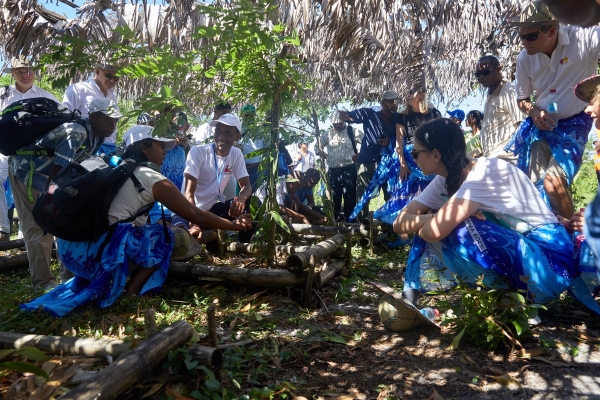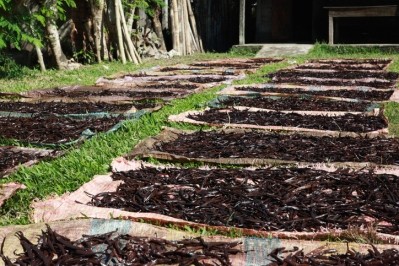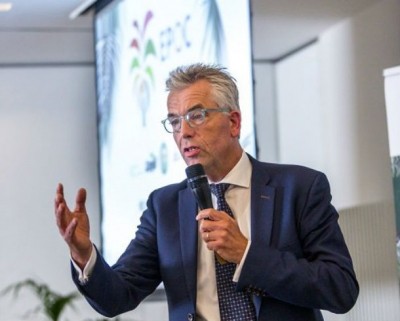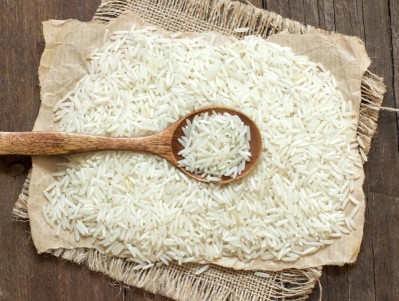‘Extended supply chains are broken’: Why Mars thinks the commodities era is over
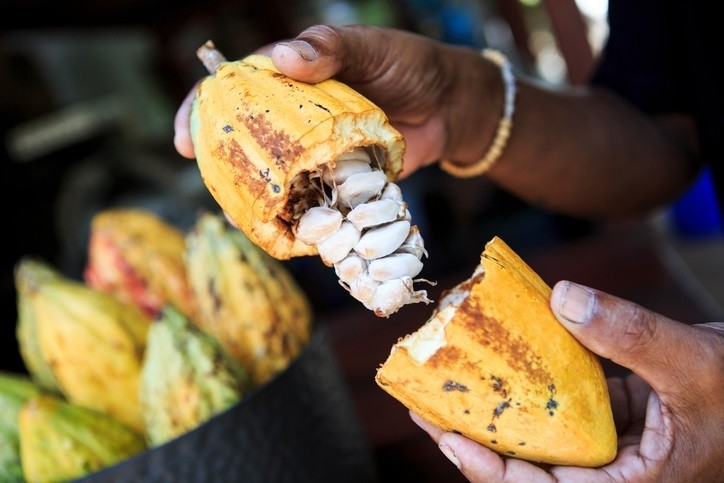
Mars has spent three years mapping its supply chain. To date, the Snickers-to-Dolmio manufacturer has mapped the origin of 23 different raw materials and has developed “transformational strategies” for the ten “most crucial” in terms of their impact on “business, the environment and society”, Parkin explained.
The company is now working to advance sustainable sourcing strategies for rice, cocoa, palm oil, sugar, mint, dairy, fish, beef, soy, pulp and paper.
“About one million farmers supply us. They range from big successful farmers through to smallholder farmers. The majority are smallholders. There are 500 million smallholder farmers across the world. They are the poorest people in the world. Once you map that, you start to realise the challenges in terms of income levels and environmental footprint. That mapping exercise allowed us to really understand our baseline… That was the springboard to set the right goals.”
Finding ‘win-win-wins’
In order to achieve this, Mars is seeking out opportunities where it can deliver “win-win-wins” for the company, its suppliers and the environment.
By working with farmers through a series of Livelihood Projects, the group is building the business case for farmers to adopt more efficient and more sustainable techniques. And the benefits are feeding through to Mars’ bottom line, Parkin explained.
“These livelihood projects are about building hope for communities by showing success stories. We are going to see that in vanilla, we have got some projects in cocoa, mint. A great example in rice. We source basmati rice in Pakistan. We were able to improve farmer income by 30%, reduce water use by 30% and … we have reduced the cost structure to Mars by 30%.
“You really can get this win-win-win when you bring new techniques and technologies. That is what we are looking for. This is not about philanthropy. It is about finding win-win-wins that are great for the farmer, the planet and our business.”
Mars is supporting the introduction of agronomic developments as well as new agricultural technologies and techniques. Through initiatives like show farms, the company is demonstrating the effectiveness of these changes. It is also increasing farmers’ access to capital and markets so that they are able to invest in these initiatives.
This month Mars joined with Danone, Firmenich and Veolia on a trip to support local farmers in Madagascar. In response to what Mars described as a "vanilla crisis", the Livelihoods programme aims to improve sustainability while tripling the income of family-owned vanilla farms and creating cooperatives that build profitability.
“Where we have chosen to work with farmers and drive transformation, we are focused on business. This has to be a business model that works for them. We want to transform [from subsistence farming] to a business model that is more profitable and reduces the environmental impact.”
Mars calls this approach “mutuality”. “It is one of our five principles. The whole point about mutuality is we can only be successful in the long-term as a business if everybody we touch is also successful,” Parkin argued.
‘Just another business goal’
The executive, who is responsible for both sourcing and sustainability strategy at the chocolate-to-pet food giant, insists that the best way to hit sustainability targets is to think about them as “just another business goal”.
“You have to treat it like normal business. Profits, greenhouse gas, cash, human rights issues. They are all just business goals,” he explained.
This approach has seen Mars set itself some challenging sustainability targets. The company recently launched its US$1bn Sustainable in a Generation (SiG) plan, which details its ambitions around moving towards a “healthy planet, thriving people and nourishing wellbeing”.
Mars’ Sustainable in a Generation Goals are to:
- Reduce the total GHG emissions across the value chain by 27% by 2025 and 67% by 2050 (from 2015 levels)
- Eliminate water use in excess of sustainable levels in the value chain
- Hold flat the total land area associated with its value chain
- Enable everyone working within the extended supply chains to earn a “ “sufficient income to maintain a decent standard of living”
- Improve working lives by tackling issues like forced labour
- Unlock opportunities for women in Mars’ workplaces, marketplaces and supply chains
- Improve food safety and security
- Deliver one billion more “healthy meals” by 2021
- Ensure marketing, labelling and portioning helps consumers limit their consumption of sugar and trans fats
“We have taken a science-based approach to goal setting… I don’t decide what the right carbon goals are. We can’t warm the world more than two degrees. Our [carbon] footprint is 26m tonnes of carbon across the extended supply chain, which is the same as a small country… The science says we therefore need to reduce that by one-third by 2030, by two-thirds by 2050. The goal is set by the planetary boundaries. The job of the teams internationally is to work out how we can achieve that.”
By looking at the sustainability agenda through a business lens, Parkin believes companies can be at the forefront of driving change. “It is crucially important for companies to take the lead.... We are relevant in terms of scale. The ideal scenario is for government and industry are both working alongside each other. But some governments aren’t, so we think that industry needs to play a leading role.”
Pointing to the success of a public-private partnership to tackle deforestation in West African cocoa production, Parkin also stressed the need to form partnerships between business, governments, NGOs and other actors.
“It is hard to get stuff done on your own. We are great believes in this idea of un-common collaboration, building partnerships up and down our value chains but also with our competitors, pre-competitive action.”
‘The end of the commodities era’
Supply chains are under greater scrutiny than ever before, forcing companies to examine their sourcing strategies and the broader social and environmental impact that this has.
Parkin suggested that this situation is putting strain on the traditional linear supply chain model. “Extended supply chains are broken. Companies need to take responsibility for what is going on in their value chains. Farmers are not doing well. The environment is not being protected. The only way we can solve all of that is if we chance sourcing strategies. The answers will often sit with procurement: what materials we are buying, where we are buying them and how we are buying them. That is a crucial part of the whole sustainability journey.”
Mars’ SiG programme aims to move “from policy and commitment” on sustainability to action, which Parkin said has to be in the form of “changing how you do business”.
“This is the end of the commodities era. Commodities were all about buying materials of unknown origin, on short-term contracts, with price being the only differentiator. What we now know is there are big differences in terms of the social and environmental impacts of what you source. It is no longer acceptable not to know where your materials are from. There are going to be very different sourcing models in the future.”
Winning the ‘transparency race’
Parkin insisted that this new paradigm necessitates global FMCG companies to shake-up how they do business, improving traceability and removing unnecessary steps from the supply chain.
He observed: “We are in a transparency race. As a company we had better find out where our materials are coming from, and under what social and environmental conditions they are being produced. We need to get working on fixing it before somebody else tells us what is going on. I want to be on the front foot in this race. I want to win this race.”
In order to improve visibility in the supply chain steps must be taken to simplify it, Parkin suggested. Looking at palm oil, he revealed that Mars buys 0.2% of the world’s palm oil supply and is connected to “half” the palm oil mills in the world, more than 1,500 mills. “There is no way we can be on top of all the conditions in all those mills, each of which is probably connected to 20 plantations. It leads you to need to simplify your supply chain, get closer to the origin of your supplies, so you can really know what is going on… You can no longer buy at arm’s length from unknown suppliers. You can no longer buy on price.”
Instead of seeking out the cheapest commodities, large food corporations need to consider the values of their suppliers. “You chose suppliers based on their values and their ability to give you that transparency and verify their supply chain. You look to take out as many of the steps as possible. That is a process that we are going through.”
While Parkin said it “takes time to evaluate and make those calls” he also stressed the rapid pace of change displayed across the food sector. “This is happening and happening quickly, it will be less than 10 years before you know exactly where your materials come from. This is a transformational shift.”
